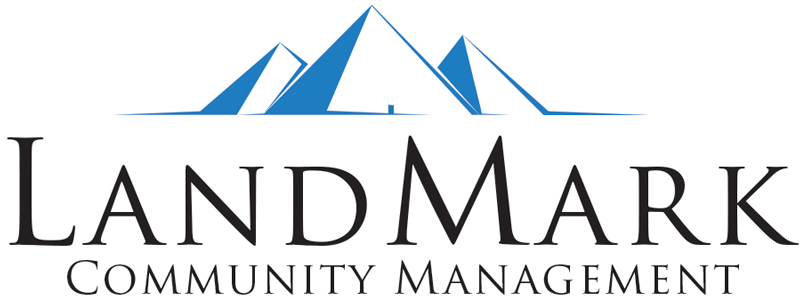Homeowners associations can benefit from HOA proxy voting. However, proxy voting can also cause confusion and misunderstandings, especially among those who are unaware of state laws and their HOA’s own rules regarding it.
What is HOA Proxy Voting?
Homeowners associations deal with voting all the time. These communities hold elections for board members and make community-wide decisions – both of which require voting. Some matters only require the votes of board members, while others require votes from all homeowners.
Of course, only some have the time to vote in person or through mail. This is where a proxy vote comes in.
What is a proxy vote? A proxy vote is a document that gives one person the authority to vote on behalf of another. For example, a homeowner can appoint their neighbor to represent them at a meeting and cast their vote.
Proxy votes are typically available to both board members and homeowners. They are commonly used in communities that don’t utilize electronic voting. They also help associations reach a quorum, which can be very difficult for HOAs with low attendance or participation rates.
Another benefit of proxy voting is that it allows members to get involved in community affairs without putting their lives on hold. Members can lead busy lives, so their priorities may not always include attending meetings. While it is ideal to have members and owners attend and vote in person, proxy voting promotes flexibility and gives busy owners a chance to remain still involved.
How Does Proxy Voting Work?
Proxies must come in writing. Many associations have templates for homeowners and board members to designate proxies. Having a template ensures uniformity and consistency in the information provided.
Proxy votes typically can’t be reused. Once a proxy has been used in a meeting or for a particular vote, it is no longer valid. This is why proxy forms require information about the vote and how the owner wishes to cast their vote.
It is important to note that proxies come in two types: directed and non-directed.
A directed proxy, also known as a limited proxy, gives the proxy holder limited power. It directs the proxy holder on how to vote on a specific matter.
In comparison, a non-directed proxy allows the proxy holder to vote on issues as they see fit. With a non-directed proxy, the holder can attend the meeting, discover new information, and vote based on the discussion.
Proxy vs Absentee Ballot

A proxy is not the same as an absentee ballot. There is some confusion between these two terms, with many people using them interchangeably. However, there is a stark difference.
A proxy form allows one person to appoint another to represent or vote for them. On the other hand, an absentee ballot is an actual vote. If a person can’t attend the meeting in person, they use the absentee ballot to cast their vote directly.
Board members must explain the difference between proxy forms and absentee ballots. This way, homeowners can use them accurately and without confusion. It minimizes the risk of homeowners mistaking a proxy form for an absentee ballot, completing it, and sending it back without further thought. Such an error can disrupt the election process.
Who Can Serve as a Proxy?
Technically, anyone can serve as a proxy to someone else. However, there may be exceptions to this rule. State laws and the association’s bylaws may have specific requirements and regulations concerning proxy voting.
In Texas, homeowners associations must allow property owners to vote using absentee ballots and proxies. This is by Section 209.00592(a-1) of the Texas Property Code.
Homeowners and board members should appoint a proxy they trust to ensure their vote aligns with their values and perspectives. This is ideal, especially for non-directed proxies, where the proxy holder casts their vote without a directive. Most of the time, members assign a relative or friend as their proxy. However, they may also appoint neighbors.
It is crucial to check the governing documents to understand specific homeowners association proxy voting rules. While state laws dictate what HOAs can and can’t do, the association’s bylaws and CC&Rs may contain further requirements and restrictions. Many states also don’t have strict regulations concerning proxy voting.
Duration of Validity of HOA Proxies
How long do HOA proxy forms remain valid? Many owners might ask this question. However, the duration of validity can vary from one association to another, depending on state laws and the governing documents.
As previously noted, proxy forms are usually not reused. Once a proxy is used for its designated decision or vote, it no longer remains in effect. However, some communities may allow longer periods of validity. Others have automatic expiration dates after a set amount of time passes. Proxy givers can also revoke proxies.
Can HOA Board Members Vote by Proxy?
In theory, board members can use proxy votes, especially if they cannot attend a meeting. However, it is generally unwise for them to do so. Board members are responsible for making decisions for the community, and thus, they should take a more active role in the decision-making process.
Board members should attend meetings, participate in discussions, and make decisions based on sound judgment. If they allow others to vote for them, especially for non-directed proxies, they are giving someone else their power. Directed proxies can work, but they rob the board member of the chance to listen to the discussion and change their mind.
In the end, whether or not board members can use proxy voting depends on state laws and the governing documents.
What Does an HOA Proxy Form Include?
When crafting a proxy form, it is essential to include the following information:
- Homeowners association name and address
- Meeting date and time (as well as the type of meeting)
- The name of the homeowner giving the proxy
- The name of the person appointed as proxy
- What rights does the proxy holder receive
- Date and signature of both the homeowner and the proxy holder
Professional Assistance
All in all, the use of HOA proxy voting has advantages. It can help HOAs increase participation, achieve a quorum, and get things done. However, there are pitfalls when an association does not use proxies properly.
Like Landmark Community Management, an HOA management company can help boards create and manage proxies. Call us today at 512-569-5527 or contact us online to learn more!
RELATED ARTICLES:


